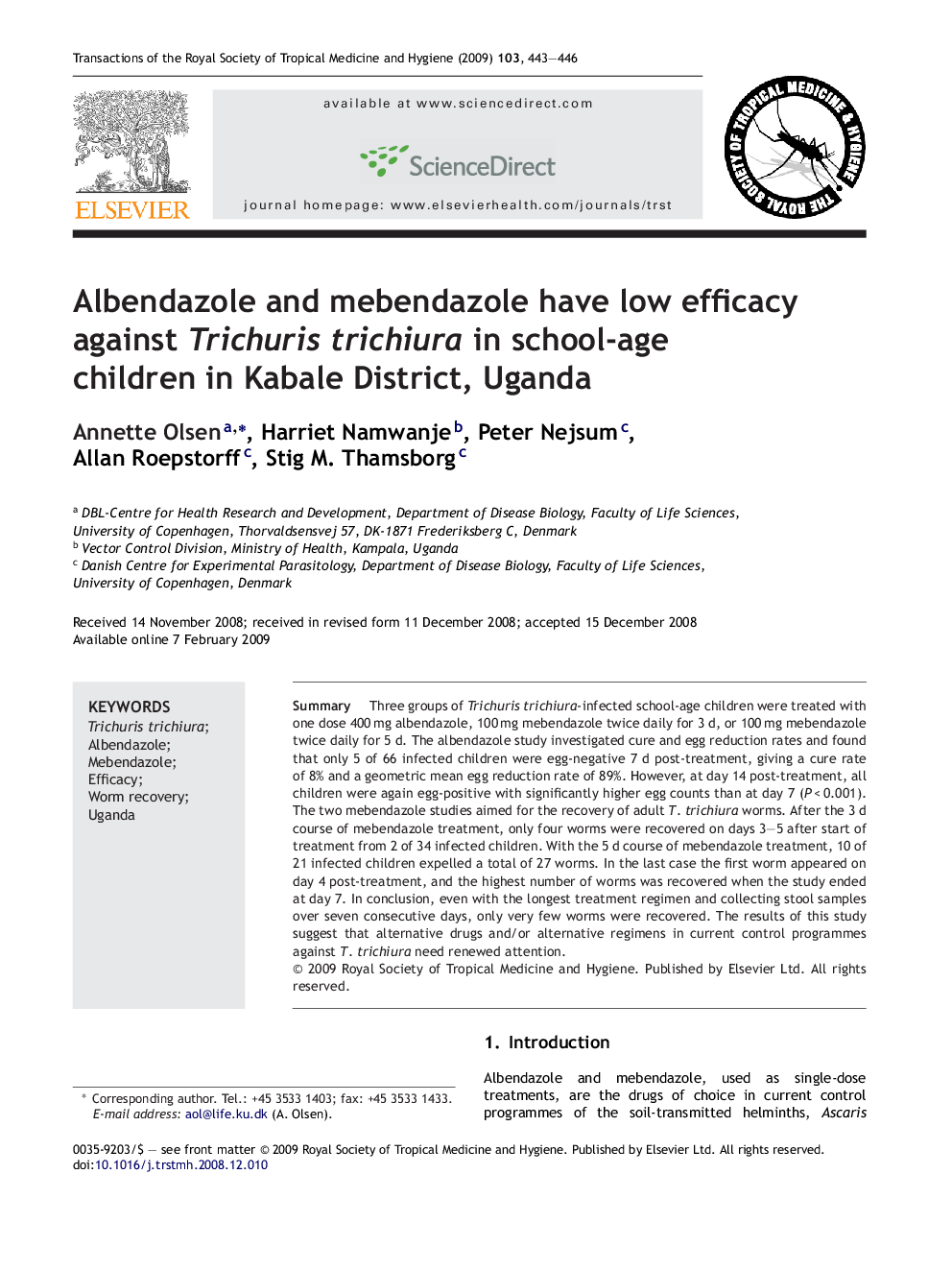| Article ID | Journal | Published Year | Pages | File Type |
|---|---|---|---|---|
| 3421080 | Transactions of the Royal Society of Tropical Medicine and Hygiene | 2009 | 4 Pages |
SummaryThree groups of Trichuris trichiura-infected school-age children were treated with one dose 400 mg albendazole, 100 mg mebendazole twice daily for 3 d, or 100 mg mebendazole twice daily for 5 d. The albendazole study investigated cure and egg reduction rates and found that only 5 of 66 infected children were egg-negative 7 d post-treatment, giving a cure rate of 8% and a geometric mean egg reduction rate of 89%. However, at day 14 post-treatment, all children were again egg-positive with significantly higher egg counts than at day 7 (P < 0.001). The two mebendazole studies aimed for the recovery of adult T. trichiura worms. After the 3 d course of mebendazole treatment, only four worms were recovered on days 3–5 after start of treatment from 2 of 34 infected children. With the 5 d course of mebendazole treatment, 10 of 21 infected children expelled a total of 27 worms. In the last case the first worm appeared on day 4 post-treatment, and the highest number of worms was recovered when the study ended at day 7. In conclusion, even with the longest treatment regimen and collecting stool samples over seven consecutive days, only very few worms were recovered. The results of this study suggest that alternative drugs and/or alternative regimens in current control programmes against T. trichiura need renewed attention.
